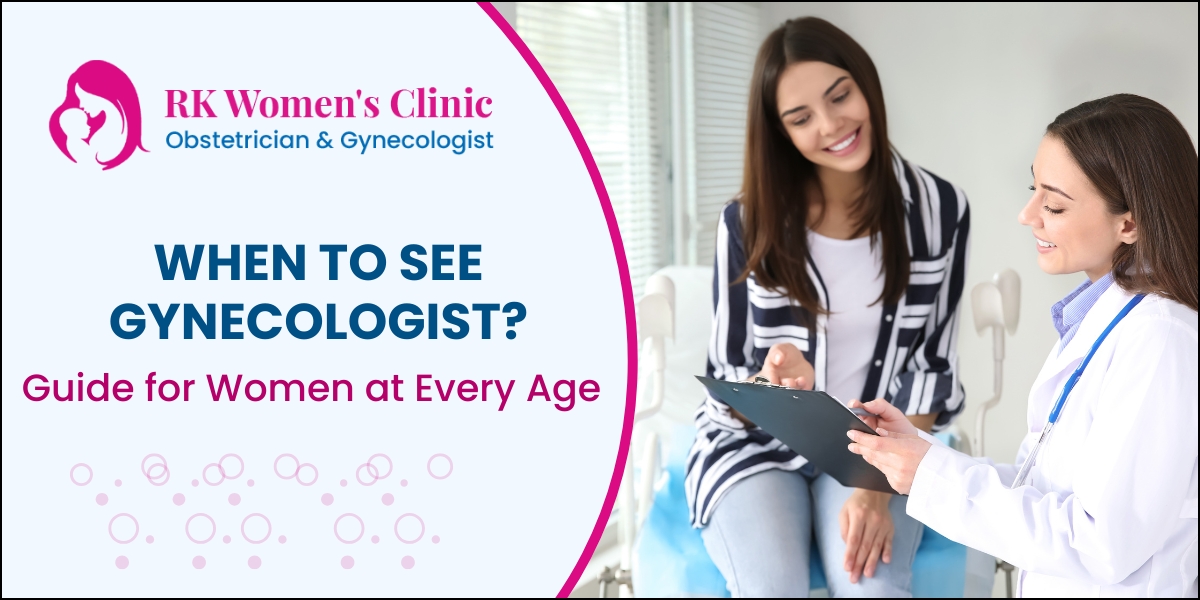Maintaining good reproductive and overall health is essential for women at every stage of life. Regular visits to a gynecologist help detect potential issues early, provide preventive care, and ensure overall well-being. But how often should you see a gynecologist, and what should you expect at different ages?
Teen Years (13-18 Years)
The first gynecologist visit typically occurs between ages 13 and 15. While a pelvic exam may not be necessary yet, this visit helps establish a relationship with the doctor and discuss:
- Menstrual health (irregular periods, severe cramps)
- Sexual health & contraception (if sexually active)
- Vaccinations (HPV vaccine to prevent cervical cancer)
- Healthy lifestyle habits (nutrition, exercise, mental health)
Parents and teens should feel comfortable asking questions about body changes and reproductive health.
Early Adulthood (19-30 Years)
Women in their 20s should schedule annual well-woman exams, even if they feel healthy. Key aspects include:
- Pap smears (starting at 21, then every 3 years if normal)
- STI screenings (if sexually active)
- Birth control counseling
- Breast exams (to check for lumps or abnormalities)
- Preconception counseling (if planning pregnancy)
This is also a good time to discuss fertility, sexual health, and any unusual symptoms like heavy bleeding or pelvic pain.
Reproductive Years (30-45 Years)
As women enter their 30s and 40s, hormonal changes, fertility concerns, and reproductive health become more prominent. Key visits should cover:
- Pap smears + HPV testing (every 5 years from 30 onwards)
- Mammograms (starting at 40, or earlier if high risk)
- Pregnancy & postpartum care (if applicable)
- Screening for fibroids, endometriosis, or PCOS
- Perimenopause symptoms (irregular periods, mood swings)
Women trying to conceive or experiencing fertility issues should seek specialized care.
Perimenopause & Menopause (45-60 Years)
Hormonal shifts during perimenopause and menopause bring new health considerations. Gynecologist visits should focus on:
- Menopause management (hot flashes, vaginal dryness)
- Bone density scans (to check for osteoporosis risk)
- Heart health & cholesterol checks
- Hormone replacement therapy (HRT) discussions
- Pelvic floor health (for incontinence or prolapse concerns)
Regular screenings for breast and cervical cancer remain crucial.
Post-Menopause (60+ Years)
Even after menopause, gynecological care remains important. Women should continue:
- Annual pelvic exams & breast checks
- Mammograms (as recommended by the doctor)
- Bone health assessments
- Screenings for ovarian & uterine cancers
- Discussions about sexual health & vaginal atrophy
Preventive care helps maintain quality of life in later years.
When to See a Gynecologist Immediately
Regardless of age, seek medical attention if you experience:
✔ Abnormal bleeding or discharge
✔ Severe pelvic pain
✔ Painful intercourse
✔ Unusual lumps in the breast
✔ Signs of infection (itching, burning, odor)
Consult the Best Gynecologist in Kasarvadavali
For expert guidance and care, visit Dr. Akula Ramya Krishna, a leading gynecologist specializing in women’s health at every age. she provides care from adolescence to menopause.
To Book An Appointment contact us at this number – +91 85916 13084





